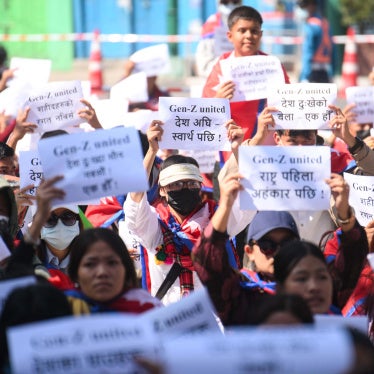On April 9, police in Bogota arrested “Jesus Santrich,” a former peace negotiator and commander of the demobilized Revolutionary Armed Forces of Colombia (FARC). His detention, on charges that he conspired with three others to smuggle several tons of cocaine into the US, spurred concerns as to how an extradition might affect the continuing peace process with the FARC.
The debate grew wider when, on April 28, the Wall Street Journal reported that the US was investigating the former FARC second-in-command and lead peace negotiator, “Iván Marquez,” for alleged drug trafficking, meaning he too could be eligible for extradition in the future.
Colombian authorities face a hard question: should they extradite former FARC commanders to the US?
Under the 2016 peace accord ratified by Congress on November 30, 2016, crimes committed until then by FARC guerrillas are handled by the Special Jurisdiction for Peace, a system of lenient “transitional justice” rules. Crimes committed later, on the other hand, can be prosecuted under ordinary criminal procedures—and suspects who face such charges in foreign countries can be extradited.
The provision allowing FARC guerrillas to be prosecuted—and extradited—under ordinary criminal law if they engage in fresh crimes makes sense. The point of the Special Jurisdiction is to address crimes committed during the conflict. It also serves the crucial purpose of providing an incentive for guerrillas to end their engagement in abuses. FARC guerrillas who got used to the outlaw life or criminal profits and couldn’t resist continuing on that path after the peace accord can end up serving substantial sentences.
This approach is sound in principle. But extraditing commanders to face drug charges in the US before they are prosecuted for war crimes in Colombia reduces the odds that they will ever face justice at home for the atrocities they stand accused of. It could still be possible for Colombian authorities to prosecute commanders extradited to the US. But this will depend largely on political will of US authorities and could face a range of problems, including a need for international cooperation.
FARC guerrillas have used child soldiers, abducted and killed civilians, engaged in widespread sexual violence, and subjected combatants to cruel and inhumane treatment. The thousands of victims deserve to see the commanders responsible face a day in court.
It’s impossible to avoid a sense of déjà vu when the extradition question arises. An effort to prosecute paramilitary commanders a decade ago ran aground on extraditions.
On the morning of May 13, 2008, then-President Alvaro Uribe announced the extradition of 14 people to the United States on drug trafficking charges. They included several top commanders of the drug-running paramilitary death squads responsible for some of the most horrific atrocities in Colombian history. The decision to ship the men out of the country came just as local prosecutors were beginning to unravel a web of paramilitary ties to prominent politicians.
The extraditions brought looming confessions—and collaboration with investigators—to a screeching halt. Ten years later, many have yet to face justice in Colombia. Last October, Colombian “Justice and Peace” courts established to prosecute paramilitary commanders reported that they had achieved convictions against only 3 of the 14 for various atrocities. In addition, one of the 14 who was excluded from these special courts accused of failing to cooperate with the justice system was later convicted for war crimes by ordinary courts.
In the meantime, back in the US, many extradited paramilitaries got sentence reductions, The New York Times found, and two were allowed to stay in the US, despite being wanted by Colombian autorities.
The Special Jurisdiction for Peace, as Human Rights Watch has shown, provides inadequate guarantees of meaningful justice. Yet extraditing the FARC commanders now will at least delay investigations, prosecutions, and sentencing for their war crimes in Colombia, and could deprive victims of justice altogether. A US trial on drug charges is no substitute for accountability in Colombia for grave crimes, and the authorities should carefully consider whether extradition risks sacrificing one for the other.








